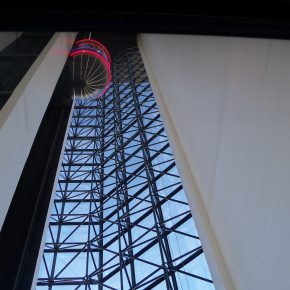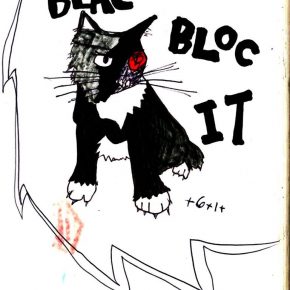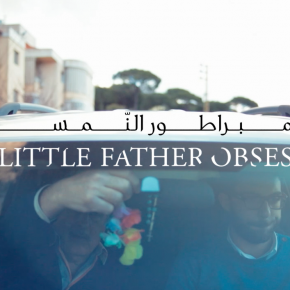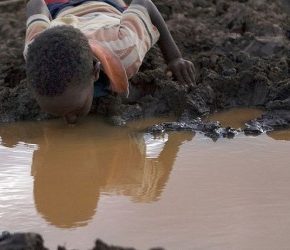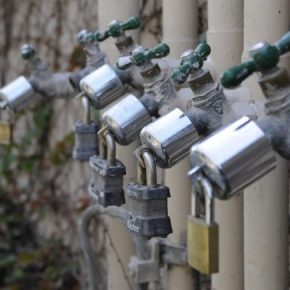Happy New Year! Many folks are glad to throw off the miasma of 2016 and thrust headlong into a new calendar year, while others hesitate, nervous about the vast unknown that is 2017.
Christopher Bernard kicks off this issue with a review of San Francisco’s 13th Floor Theater Company’s show Next Time I’ll Take the Stairs, which seems to be a cacophony of amusing tales by fanciful characters all stuck in an elevator. This reminds our editor of our own publication, and I now introduce several other contributions by fellow ‘passengers.’
Rui Carvalho describes a graphic novel by André Oliveira (writer) and graphic designer Joana Afonso. The piece, Living Will, fits in with the New Year theme as it’s about an older man mourning his lost spouse and resolving to restore what’s broken or incomplete in his life.
J.J. Campbell’s poetry brings us a mixture of vulnerability and determination, fragility and resilience, loss and hope. Like Andre and Joana’s character Will, his speakers are worn down by loss and deprivation of various sorts, unsure about themselves, but never quite give up on fixing their situations.
J.K. Durick gives us his take on manhood in older age, describing a group of men who talk together, attend to their physical comforts, and reminisce about the past. In his prose poem, written as a story-like character sketch, we hear the men’s vague recollection that they wrote pieces and accomplished something in their younger days.
Jaylan Salah interviews Spanish film director Giovanna Ribes, who made an appearance at the Cairo Film Festival, about her new movie The Family: Dementia. This black and white piece, infused with the director’s personal memories, conveys the gradual deterioration of an old man’s mind, the sensory experiences that ground him to physical reality as long as possible, and the tension his condition provokes in his family between remembering him how he was and interacting with him as he has become.
Tony Nightwalker LeTigre, past editor of this publication, contributes a personal essay exploring the intersection between his unconventional lifestyle and his political activism. Sometimes survival itself can be a revolutionary act.
Tony also continues these themes in a collection of poetry, prose, lyrics and artwork entitled ‘Old Town Tony’ describing his experiences outside mainstream society in Portland, Oregon.
Jaylan Salah interviews Lebanese film director Selim Mourad, creator of This Little Father Obsession, a tale of a young gay man’s coming to terms not just with his own identity in a traditional society, but with what it means to be part of a family and to find older masculine role models and interpret the role of fatherhood in a way that makes sense in his life.
Donal Mahoney recollects his friendship with a Muslim colleague, how they were able to laugh and joke with only the regular awkwardness of social faux pas before the world political situation imposed another level of separation into people’s lives. Like the protagonist of Selim Mourad’s film and Tony Nightwalker LeTigre’s essay, Donal and his friend Mohammed are ordinary people figuring out their lives, in retrospect in their case, within a broader background framework of political and social relationships and tensions.
Mahbub’s poetry, when taken as a group this time around, probes the power and capacity of individuals to impact the world where we live. Are we little boys playing in an outsized world not made for us, or helpless pawns in someone else’s political game, or lonely hearts lamenting our lost loves? In any case, we are mortal, our time here is limited. Perhaps our best option is to appreciate what we can enjoy, starting with that contemplative moment in the evening when the light is perfectly slanted.
Vijay Nair’s poetry calls our attention to something we all must resolve as a species in coming years: the global shortage of clean drinking water. Already many people walk miles to gather water each day and get sick from waterborne diseases.
Michael Marrotti’s new poem evaluates and ultimately defends the work of his neighborhood rescue mission, where he volunteers to assist the homeless. His poem suggests that perhaps limitations on freedom might actually benefit those who have lost control over their lives. And that some efforts, although imperfect, to assist those in need, can be better than nothing.
Christopher Bernard also calls out the social injustice he sees wreaked upon the world by the election of Donald Trump to the United States presidency. Perhaps in opposition to the aesthetic of a young nation that sees itself as exceptional and values innovation over tradition, and its new leader, who sees himself as personally important and personally able to restore the nation to greatness, Bernard situates his commentary on Trump within a historical and cultural literary context. The United States, and all of its leaders, are only part of a broader world history, and so far all great empires have risen and fallen.
Joan Beebe also reminds us that as humans we are part of a larger whole, the world of nature. The natural world has seasons and cycles, where we live and die, rise and fall, and take our turns impacting the world. While we’re here, we can care for each other, as Joan does by sending her love and best wishes to a relative serving in the armed forces. Joan also celebrates a lovely and adventuresome vacation she and her husband took through the American Southwest.
Like Mahbub’s speaker, she takes simple joy in experiencing natural beauty, which may be one of the best ways we as mortal, fragile creatures can find happiness.
Whatever floor life’s elevator brings you to this coming year, whether your fortunes rise or fall, or even if the elevator gets stuck and you end up camping out there for awhile, may you enjoy reading this issue. Happy New Year!

